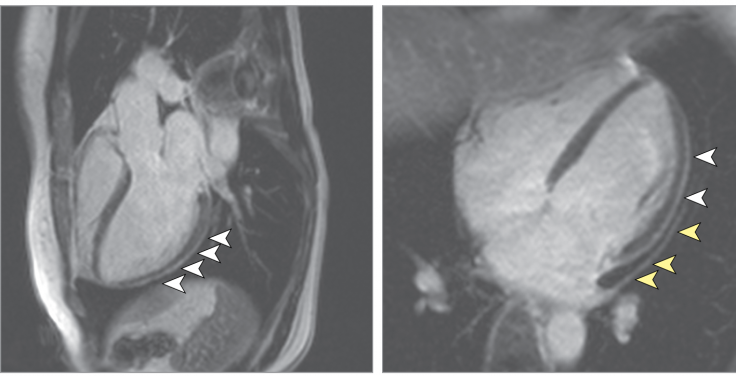Coronavirus can inflict damage to the heart in ways similar to how a heart attack affects patients, two new German studies published on Monday found. Noting that it was too soon to determine whether the damage was lasting, the researchers said the findings indicated that it is necessary to consider the involvement of the heart while treating a Covid-19 patient.
The studies – published in JAMA Cardiology – simultaneously examined recovered patients' cardiac MRI scans and the autopsy results of patients who died of the coronavirus. The researchers found that Covid-19 caused structural changes to the heart.

For the first study, the researchers assessed the MRI scans of 100 recovered patients – aged between 45 and 53 – taken two months after their recovery. Of these, 67 patients recovered from the disease at home, while the remaining 33 patients had to be hospitalized. None of these patients had pre-existing medical conditions.
The researchers found that 78 patients had structural changes to their heart and 60 patients had inflamed heart. The team also found evidence of a biomarker a cardiac injury found in people surviving a heart attack.
"The fact that 78 percent of 'recovered' [patients] had evidence of ongoing heart involvement means that the heart is involved in a majority of patients, even if Covid-19 illness does not scream out with the classical heart symptoms, such as anginal chest pain," Valentina Puntmann, the lead author of the study told Stat News. "In my view, the relatively clear onset of Covid-19 illness provides an opportunity to take proactive action and to look for heart involvement early."

In the second study, researchers examined autopsy reports of 39 people who died in April due to infectious disease. They were aged between 78 and 89. The researchers found that 24 patients' hearts had a high level of coronavirus. The researchers noted that further study was required to understand whether these changes could be permanent or temporary.
Earlier this month, John Swartzberg, clinical professor at UC Berkeley-UCSF Joint Medical Program, said that there was evidence that the virus attacked heart muscle cells.
"[There's] also evidence that the cytokine storm that the virus triggers in the body not only damages the lungs but can damage the heart," Swartzberg told Berkeley News. "We don't know what the long-term effects of that maybe, but it could be that we will have a population of people who survive COVID-19 only to go on and have chronic cardiac problems."
Initial symptoms of coronavirus include cough, tiredness, fever and cold. However, health experts have said that the virus aggressively attacked people with pre-existing conditions such as heart problems, high blood pressure and diabetes.









